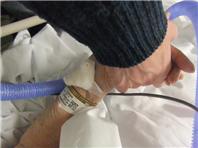Peter Saul, Senior Specialist in Intensive Care and Head of Clinical Unit in Ethics and Health Law at University of Newcastle, New South Wales, Australia (yes we are an inventive lot when naming places in Australia...), today had the following article published in The Conversation:
theconversation.com/a-conve...
While Australia is doing far better economically than most countries, our federal government (which earlier pretty well guaranteed that there would be no budget deficit this financial year), has recently acknowledged that they can't achieve that and today further acknowledged a budget revenue shortfall of A$12 billion. Economists can't see Australia getting back into the black any time soon either.
With ever increasing health costs, it is in our interests to become involved in determining where that money is spent before it is decided for us. The recent push by doctors for more acceptable prices for new therapies is a welcome start, see:
cllsupport.healthunlocked.c...
For years, there has been talk of spending more money on preventive health measures (guard rails at the top of the cliff rather than a freeway for an ambulance to reach someone who has fallen off), but it has been far more talk than action in Australia.
As a CLL patient, where I have a relatively rare illness that has not been the result of my lifestyle, I find it frustrating that research and healthcare funding is likely to be allocated to more common illnesses - many of which are lifestyle related, but I can understand the cold logic involved.
One of the objects of CLLSA is "To promote and support scientific research into the treatment and care of CLL patient".
How do we work out what research and health care is worth funding?
Neil
